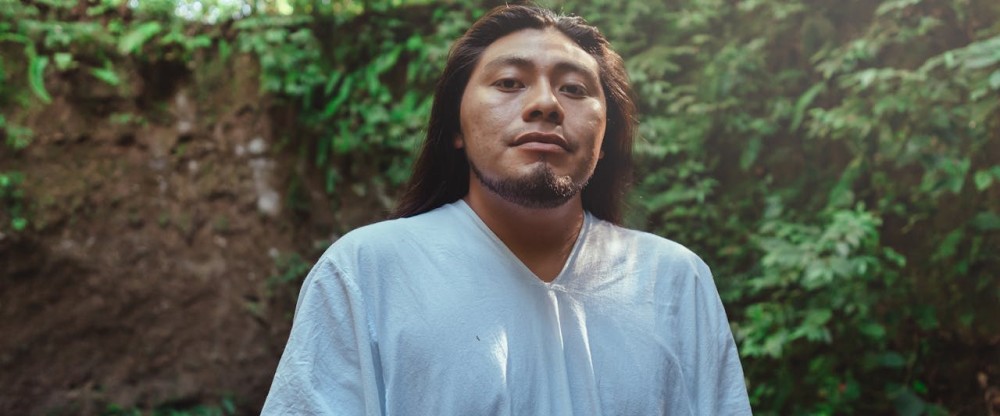
“It is Easier to Build Strong Children Than To Fix Broken Men”
Native American children whose parents are imprisoned face unique obstacles that can have serious repercussions for their well-being and future prospects. Native Americans face an alarmingly high incarceration rate, leaving many children without crucial support or guidance during their formative years. This article will examine the specific challenges experienced by Native American children with incarcerated parents, and examine how communities and organizations are providing support and resources to enable these children to overcome any challenges they encounter. By stressing the importance of recognizing and meeting the needs of these vulnerable children, we can make a real impactful difference in their lives while breaking down the cycle of imprisonment that often plagues Native American communities.
The degradation of Native American communities across the U.S. remains a disturbing testament to history’s turbulent events: forced relocations, broken treaties, and diminished cultural identities are just some of the factors at play here. Recently, as the economy remains unstable and systemic social issues such as alcoholism and substance abuse compound, Native American populations have seen some of the highest incarceration rates nationwide. Children of incarcerated parents bear an unacknowledged burden as an absence is experienced by an absent parent. There is thus an urgent need to provide comprehensive and coordinated support services to Native American children living with incarcerated parents.
On any given day, numerous Native American children find one or both parents in the criminal justice system. For these children, this fact exacerbates already challenging aspects of belonging to an under-served community and presents unique obstacles. Parental incarceration disrupts families and finances while stigmatizing those left behind – creating instability for Native American children already experiencing historical and ongoing oppression.
The first step towards improving them should be addressing children’s essential needs: housing stability, psychological support, educational opportunities, and connections to culture and identity. A safe home provides essential protection for their well-being. Unfortunately, many Native American communities are plagued with housing shortages and quality issues which further compound anxieties associated with parents being imprisoned – hence targeted efforts are required to create and secure stable homes for these children.
Children of incarcerated parents, no matter their ethnicity or background, frequently face stigmatization, shame, and complex emotional traumas. Native American communities could be especially hard hit given their higher rates of mental illness and limited access to mental health services. Initiatives must prioritize creating culturally competent mental health services that respect the cultural context of these experiences and offer psychological support tailored specifically for them.
Promoting educational opportunities for these children is also crucial. Offering educational resources and support can help alleviate some of the negative socioeconomic effects associated with incarceration, breaking intergenerational cycles of crime and poverty while providing valuable learning experiences for our youth. Increased funding for Native American education programs could make an invaluable difference in these children’s lives.
Equally essential is strengthening children’s connections to their cultural heritage. Cultural identity, traditions, and practices play a fundamental role in Native American children’s development and well-being; therefore programs encouraging cultural education and respecting traditions can foster resilience among these youngsters who may otherwise struggle due to parental imprisonment.
Systemic changes must also be instituted to directly address parental incarceration. These measures include encouraging preventative and rehabilitative approaches to crime in Native American populations that integrate restorative justice models rooted in tribal traditions with emphasis placed upon community healing as opposed to punitive measures; this can help decrease recidivism rates while ending the devastating cycle of parental imprisonment.
Laws must also be revised to protect children during and after their parent’s incarceration, with current legal frameworks often failing to adequately consider how incarceration impacts his/her children. Family liaison services or advocacy services may play a key role in representing the interests of these minors during criminal justice processes.
Tackling the challenges faced by Native American children of incarcerated parents can be a formidable undertaking, yet its long-term payoff for individuals and communities alike makes the effort well worthwhile. By breaking through a cycle of trauma layer by layer until resilience, strength, and hope emerge, society should at least do our part in providing them with a safer, nurturing environment despite history’s unfair hand in play.
Frederick Douglass once wrote, “It is easier to build strong children than fix broken men.” Native American children living with incarcerated parents exemplify this wisdom in action – their plight shines light upon its truth and points towards investing in children, their resilience and potential while simultaneously healing and mend their communities. Now is the time to put this advice into action and provide tangible support to these Native American kids of incarcerated parents.
Supporting Native American children of incarcerated parents is of utmost importance in meeting the unique challenges they face. Children can often experience trauma, loss and instability as a result of their parent’s incarceration which has long-lasting repercussions for their development and well-being.
Assuring our support services are culturally sensitive and trauma-informed will enable children to navigate the complexities of their situations with resilience and strength, including accessing mental health resources, educational supports, and community programs that recognize their cultural heritage.
Policymakers, advocates and community members must work collaboratively to identify the needs of Native American children of incarcerated parents and create an equitable and supportive environment for them. By amplifying their voices and advocating for systemic change while encouraging healing and resilience – together we can make a significant impactful impact in their lives.
At this juncture, let us pledge our solidarity with Native American children of incarcerated parents by offering them the necessary support and resources that will enable them to overcome adversity and live lives filled with strength, dignity and hope. Together we can foster brighter futures for these children while building stronger communities for everyone involved.
SubRosa Mental Services provides a client-forward approach to helping individuals, businesses, and children, in addition to offering life coaching and emotional support animal assistance. Reach out today to find out more.

